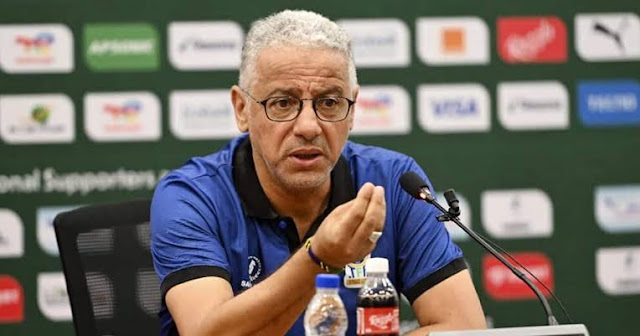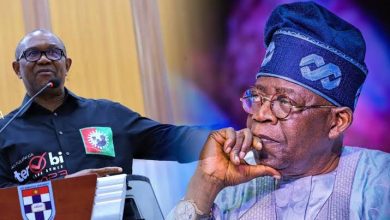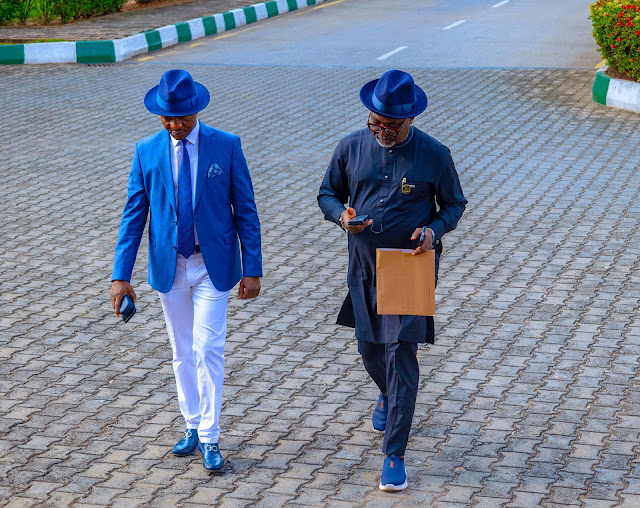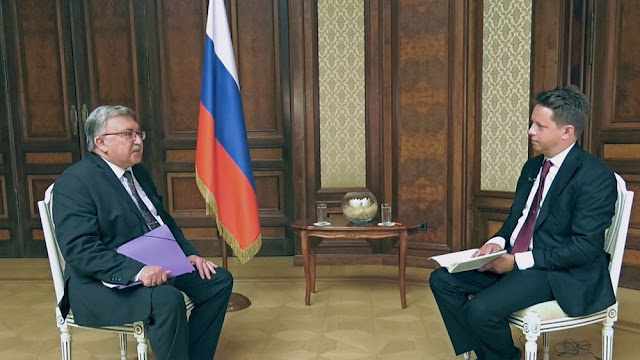On a vibrant Saturday evening at the Godswill Akpabio International Stadium in Uyo, Nigeria’s Super Eagles delivered a commanding 3-0 victory over the Cheetahs of Benin Republic in their opening match of the 2025 Africa Cup of Nations (AFCON) qualifiers. The match, a testament to Nigeria’s footballing prowess, showcased the Super Eagles’ attacking flair, defensive solidity, and tactical discipline under the guidance of interim coach Augustine Eguavoen. However, for Benin Republic’s head coach, Adel Amrouche, the result was a bitter pill to swallow. In a post-match press conference, Amrouche candidly admitted, “I am not happy,” reflecting on his team’s inability to match Nigeria’s intensity and capitalize on their opportunities.
A Dominant Display by Nigeria
The Super Eagles entered the match as favorites, given their pedigree as three-time AFCON champions and their recent appearance in the 2023 AFCON final, where they narrowly lost to Ivory Coast. The stakes were high, as this was the first competitive match for Nigeria since that heartbreaking defeat, and the team was eager to set a positive tone for their 2025 AFCON qualification campaign. With a passionate home crowd behind them, the Super Eagles did not disappoint.
The scoring began in the 27th minute when Victor Osimhen, Nigeria’s talismanic striker, latched onto a precise through ball from midfielder Wilfred Ndidi. Osimhen, who plays for Napoli in Italy’s Serie A, showcased his clinical finishing by calmly slotting the ball past Benin’s goalkeeper, Marcel Dandjinou. The goal sparked wild celebrations among the fans, who had waited anxiously for their team to break the deadlock. Osimhen’s strike was a reminder of why he is considered one of Africa’s finest forwards, with his ability to combine physicality, speed, and precision.
The second goal came shortly after halftime, in the 53rd minute, courtesy of Ademola Lookman. The Atalanta winger, who has been in scintillating form in Europe, capitalized on a defensive error by Benin Republic. A misplaced pass in the Cheetahs’ backline was intercepted by Alex Iwobi, who quickly fed Lookman. The 26-year-old winger darted into the box and unleashed a powerful shot that left Dandjinou with no chance. Lookman’s goal doubled Nigeria’s lead and effectively put the game beyond Benin’s reach, as the Cheetahs struggled to regroup.
The final nail in the coffin came in the 78th minute when substitute Victor Boniface, who had replaced Osimhen, sealed the victory with a well-taken header. The goal stemmed from a beautifully delivered cross by Samuel Chukwueze, who had been a constant menace on the right flank. Boniface, who plays for Bayer Leverkusen in the German Bundesliga, demonstrated his aerial prowess and added his name to the scoresheet, much to the delight of the Uyo crowd. The 3-0 scoreline was a fair reflection of Nigeria’s dominance, as they controlled possession, created numerous chances, and maintained a solid defensive structure throughout the match.
Amrouche’s Disappointment and Tactical Reflections
For Adel Amrouche, the head coach of Benin Republic, the defeat was a stark reminder of the gap between his team and Africa’s footballing giants. In his post-match comments, Amrouche was forthright in his assessment, stating, “I am not happy. We came here with a plan to frustrate Nigeria and hit them on the counter, but we failed to execute our strategy. Nigeria was the better team today, and we have to accept that.” His honesty highlighted the challenges faced by smaller footballing nations when competing against powerhouses like Nigeria.
Amrouche, a seasoned coach with experience across various African national teams, had hoped to replicate the Cheetahs’ recent competitive performances. Benin Republic had shown promise in previous AFCON tournaments, notably reaching the quarterfinals in 2019, where they lost to Senegal. However, against Nigeria, their defensive organization crumbled under pressure, and their attacking forays were limited. Key players like Steve Mounié and Jodel Dossou, who were expected to lead the charge, were effectively neutralized by Nigeria’s backline, marshaled by the experienced William Troost-Ekong and the versatile Semi Ajayi.
Amrouche pointed to specific moments where his team faltered, particularly in the second half when Nigeria’s intensity overwhelmed them. “We lost concentration after the second goal, and that was the turning point,” he said. “Nigeria punished our mistakes, and we couldn’t recover. We need to go back, analyze this game, and prepare better for our next match.” His comments underscored the need for tactical adjustments and mental resilience as Benin Republic aims to secure qualification for the 2025 AFCON, to be hosted by Morocco.
Nigeria’s Tactical Masterclass
Under interim coach Augustine Eguavoen, Nigeria displayed a level of cohesion and dynamism that had been missing in some of their recent performances. Eguavoen, who has previously led the Super Eagles in various capacities, opted for a 4-3-3 formation that allowed his team to dominate possession while maintaining width and depth in attack. The midfield trio of Wilfred Ndidi, Alex Iwobi, and Frank Onyeka provided a perfect blend of defensive solidity and creative flair, enabling Nigeria to transition quickly from defense to attack.
Ndidi, in particular, was a standout performer, breaking up play in midfield and initiating attacks with his precise passing. His role as the anchor allowed Iwobi and Onyeka to push forward, creating overloads in the final third. On the flanks, Samuel Chukwueze and Ademola Lookman exploited the spaces left by Benin’s full-backs, while Victor Osimhen’s movement off the ball kept the Cheetahs’ defenders on edge.
Defensively, Nigeria was equally impressive. Goalkeeper Stanley Nwabali, who has become a mainstay since his heroics at the 2023 AFCON, was rarely tested but remained alert when called upon. The center-back pairing of Troost-Ekong and Ajayi was impenetrable, while full-backs Ola Aina and Bruno Onyemaechi provided balance by contributing to both defensive duties and overlapping runs.
Eguavoen praised his team’s performance but remained cautious about the road ahead. “This is just the first step,” he said in his post-match press conference. “We played well, but there are still areas to improve. The boys showed hunger and determination, and that’s what I want to see in every game.” His comments reflected a focus on maintaining consistency as Nigeria aims to secure qualification and ultimately challenge for the AFCON title in 2025.
Historical Context: Nigeria vs. Benin Republic
The rivalry between Nigeria and Benin Republic, while not as high-profile as Nigeria’s clashes with teams like Ghana or Cameroon, carries its own significance. The two nations share a border and a history of competitive encounters, particularly in AFCON qualifiers and West African tournaments. Nigeria has historically dominated the fixture, with superior resources, a larger talent pool, and a more established footballing infrastructure.
However, Benin Republic has occasionally caused upsets, most notably in a 2008 AFCON qualifier when they held Nigeria to a draw. The Cheetahs’ 2019 AFCON campaign, where they reached the quarterfinals, marked a turning point in their footballing journey, signaling their ambition to compete with Africa’s elite. For Nigeria, matches against Benin provide an opportunity to assert their dominance in the West African region and fine-tune their squad for bigger challenges.
The 3-0 result in Uyo was Nigeria’s fifth consecutive victory over Benin Republic in competitive matches, further solidifying their superiority. However, the margin of victory was particularly significant, as it sent a strong message to other teams in Group D, which includes Rwanda and Libya. Nigeria’s emphatic start positions them as frontrunners to top the group and secure qualification for the 2025 AFCON.
Player Spotlight: Victor Osimhen’s Leadership
Victor Osimhen’s performance was a highlight of the match, not only for his goal but also for his leadership on the pitch. As Nigeria’s biggest star and the reigning African Footballer of the Year, Osimhen carried the weight of expectations into the game. His work rate, movement, and ability to hold up play were crucial in creating space for his teammates. Beyond his goal, Osimhen was involved in several key moments, including a near-miss in the first half when his header rattled the crossbar.
Osimhen’s importance to the Super Eagles cannot be overstated. Since bursting onto the international scene in 2017, he has grown into a complete forward, combining physicality with technical finesse. His time at Napoli, where he led the club to their first Serie A title in over three decades, has honed his ability to perform under pressure. Against Benin, he demonstrated why he is the focal point of Nigeria’s attack, constantly stretching the opposition defense and creating opportunities for others.
Post-match, Osimhen emphasized the team’s collective effort. “This win is for the fans and the entire country,” he said. “We knew Benin would be tough, but we stayed focused and got the job done. We’re looking forward to the next game.” His humility and team-oriented mindset endeared him further to the Nigerian supporters, who see him as a symbol of hope for future success.
Benin Republic’s Struggles and Aspirations
For Benin Republic, the defeat highlighted the challenges of competing against a team of Nigeria’s caliber. Despite their progress in recent years, the Cheetahs lack the depth and individual quality to consistently challenge Africa’s top teams. Players like Steve Mounié, who plays for Brest in France’s Ligue 1, and Jodel Dossou, a veteran winger, showed flashes of brilliance but were unable to influence the game decisively.
Amrouche’s tactical approach relied heavily on a compact defensive shape and quick counterattacks, but Nigeria’s relentless pressure disrupted this plan. The Cheetahs struggled to maintain possession in midfield, with Nigeria’s high pressing forcing turnovers in dangerous areas. Additionally, Benin’s lack of creativity in the final third limited their ability to test Nigeria’s defense, resulting in a one-sided encounter.
Despite the loss, Amrouche remained optimistic about his team’s chances in the qualifiers. “This is a marathon, not a sprint,” he said. “We have more games to play, and we will fight for every point.” Benin’s next match against Rwanda will be crucial, as they aim to bounce back and keep their qualification hopes alive.
Implications for AFCON 2025 Qualification
The victory gives Nigeria a strong start in Group D, where they are expected to compete with Rwanda and Libya for the top two spots that guarantee qualification. With three points in the bag and a healthy goal difference, the Super Eagles are well-positioned to build on this performance. Their next match, a trip to face Rwanda, will test their ability to maintain momentum away from home.
For Benin Republic, the defeat is a setback but not a fatal blow. The Cheetahs will need to regroup quickly and focus on their upcoming fixtures, particularly against Rwanda and Libya, where they have a more realistic chance of securing points. Amrouche’s ability to instill belief in his players and address the tactical shortcomings exposed in Uyo will be critical to their campaign.
The 2025 AFCON, set to be hosted by Morocco, promises to be a highly competitive tournament, with traditional powerhouses like Nigeria, Senegal, and Egypt vying for the title alongside emerging teams like Benin Republic and Equatorial Guinea. For Nigeria, the goal is not only to qualify but to reclaim the AFCON crown they last won in 2013. For Benin, qualification would be a significant achievement, building on their 2019 success and signaling their growth as a footballing nation.
The Broader Context: African Football’s Evolution
The match between Nigeria and Benin Republic is a microcosm of African football’s evolving landscape. Nigeria, with its rich footballing history and vast talent pool, represents the established elite, while Benin Republic embodies the aspirations of smaller nations striving to make their mark. The gap between these teams, while evident in the 3-0 result, is not insurmountable, as evidenced by the progress of teams like Mauritania and Cape Verde in recent AFCON tournaments.
The growth of African football is also reflected in the increasing number of players plying their trade in Europe’s top leagues. Nigeria’s squad boasts stars like Osimhen, Lookman, and Boniface, who compete at the highest level in Italy, England, and Germany. Benin, while less endowed, has players like Mounié and Dossou, who bring valuable experience from European clubs. This exposure has raised the standard of international football in Africa, making qualifiers more competitive and unpredictable.
Moreover, the role of coaching cannot be overlooked. Eguavoen’s interim tenure with Nigeria has brought stability and clarity, while Amrouche’s experience with teams like Algeria and Tanzania equips him to guide Benin through challenging campaigns. The tactical evolution of African teams, combined with improved infrastructure and investment, bodes well for the continent’s footballing future.
Fan Reactions and Atmosphere in Uyo
The Godswill Akpabio International Stadium was a cauldron of noise and color, with Nigerian fans turning out in large numbers to support their team. The atmosphere was electric, with drums, chants, and vuvuzelas creating a vibrant backdrop to the match. Fans waved Nigerian flags and donned jerseys bearing the names of their favorite players, with Osimhen’s No. 9 being the most prominent.
Social media platforms, particularly X, were abuzz with reactions to the game. Nigerian fans celebrated the emphatic victory, with many praising Osimhen’s leadership and Lookman’s flair. Posts like “Super Eagles are back! Osimhen is unstoppable!” and “3-0, what a way to start the qualifiers!” flooded timelines, reflecting the optimism surrounding the team. Benin fans, while disappointed, acknowledged Nigeria’s superiority, with some expressing hope for a better performance in their next match.
The passionate support in Uyo underscored the deep connection between the Super Eagles and their fans. For many Nigerians, football is more than a sport—it is a source of national pride and unity. The victory over Benin Republic was a moment of joy for a nation that has faced economic and social challenges in recent years, offering a brief respite and a reason to celebrate.
Looking Ahead: Nigeria’s Ambitions and Benin’s Resilience
For Nigeria, the focus now shifts to maintaining their momentum in the qualifiers. The Super Eagles have a favorable group, but complacency could prove costly, as Rwanda and Libya are capable of springing surprises. Eguavoen will likely use the upcoming matches to integrate younger players like Boniface and Sadiq Umar, ensuring the team remains competitive in the long term.
Benin Republic, meanwhile, faces an uphill battle but has the potential to recover. Amrouche’s experience and the team’s determination will be key as they navigate the remaining qualifiers. A positive result against Rwanda could restore confidence and keep their AFCON dreams alive.
In conclusion, Nigeria’s 3-0 victory over Benin Republic was a statement of intent, showcasing their attacking prowess and defensive solidity. For Adel Amrouche and his Cheetahs, the defeat was a learning opportunity, highlighting areas for improvement as they aim to compete with Africa’s best. As the AFCON 2025 qualifiers unfold, both teams will look to build on this match—Nigeria with their sights set on glory, and Benin with the resolve to defy the odds.






